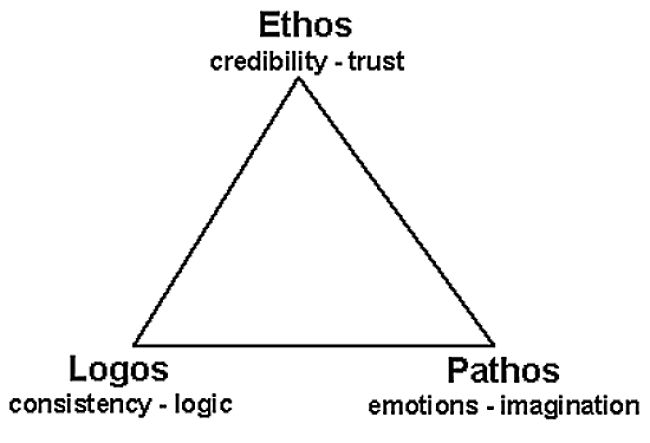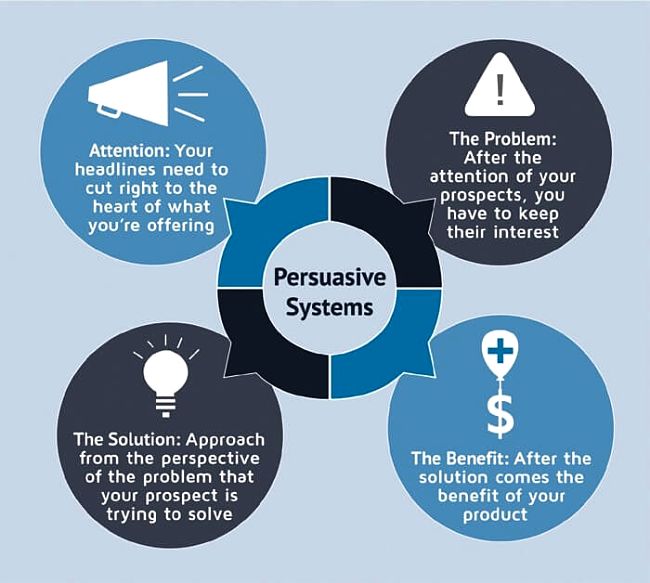The Art of Persuasion - Learn Convincing Negotiation Skills, Ways to Win
Having good persuasion skills is important in all facets of life from the personal negotiation with family members, to winning out with your friends, to succeeding at school or college, to winning arguments at work, to running a successful business. Success in all these arenas depends on learning key negotiation and persuasion skills so that people want to cooperate with you, listen to you and agree with you.
To win arguments and fulfil your goals you need to convince those opposed to you to change their minds, and this requires skills, knowledge and experience. Persuasion is an art, sometimes a brutal and powerful art, and a skill that you can learn to get an edge over an opponent by understanding their background, knowledge, weaknesses and desires.
This article provides tips and guides to increase your powers of persuasion, convince people, negotiate successfully and WIN.

Psychology of Convincing Someone
There are two fundamentally different ways to get someone's agreement that depend on their prior experience with the subject, what they already know it, and what beliefs they have that affect their views about the topic. What is also important is how they regard your knowledge, experience and beliefs about the topic.
- If the person you want to influence has good previous experience or knowledge about what you're trying to convince them to do, then your main aim is to shake their beliefs and to prove them wrong. This softens them up, so that you can subsequently present them with your own idea and convince them to change their beliefs. A little flip flop may help at the start as you try to convince them to negotiate and open up. You may flip and say that you used to think that way beforehand and discuss their beliefs and arguments. Then you can flip back as say you changed your mind and hope that this convinces them to follow you.This is an excellent strategy.
- If the person does not have a previous position of belief about the topic, then you can immediately start convincing them to adopt your position. However you still have to understand their basic belief system to understand what arguments will work.
Why Can't You Convince Other People? Why do they Oppose Me?
Before learning how to convince someone to believe in something, it is a good idea to understand why they are opposed to you or your ideas:
- Established Beliefs: If your opponent has a well established rock-solid belief systems that differs from yours - the grounds for the opposition will be clear and obvious to both of you. You need to understand their beliefs and how and why this may cause their opposition. You need to understand your own belief systems as well, and hopefully find common ground that may provide the foundation for future negotiation.
- Knowledge: The larger and more thorough a person’s knowledge about the topic the harder it will it be to convince him or her to agree with your counter argument in support of a different position. So the second major obstacle to convincing people is their level of knowledge about the topic, and your own. You need to devise different tactics dependent on your own knowledge, what they think you know and how much they really know. You need to find these things out and devise tactics to handle them.
- Perpetual Skeptics: Some people doubt almost everything and everyone, and they love to 'sit on the fence' and 'go nowhere' in discussions and resist any change. They are likely to remain skeptical and will be hard to convince to take one side or the other. You will need to find a chink in there skeptical clothing and armor so that they can be convinced to adopt a small idea or position in a way that does not threaten their overall non-commitment. They are likely to hang-out and request endless arguments from all sorts of perspectives and angles. You need to be prepared for this and find ways of making progress.
How to Convince a Person to Believe You
Using on the previous obstacles, and your opponents characteristics, described above, there are various tactics that can be applied to deal with their knowledge, belief systems, vulnerabilities and positions in the negotiations to convince them. Those techniques and tips are:
Shaking Their Existing Belief: The more confident and assertive you sound when discussing your beliefs an arguments, the greater the chance of white-anting the other person's beliefs and arguments about the topic (especially if their knowledge is poor). Always speak confidently, use confident gestures and body language to support your assertive presentation. Always us use a confident and strong tone of voice and you will start getting the person to doubt their own beliefs. Once you see a crack, work to make it larger and you will be on your way.
Undermine Their Knowledge Base: You need to convince the person that you know more about the topic otherwise you will find convincing tem very difficult. It is all about finding a seed - something that they don't know that will sew a seed in their subconscious mind, that you have authority and should be listened to. You don't have to cover everything just find something that you know more about. You may have to 'try the waters' on a variety of subjects before you can find one. Once accomplished this will make it much easier for you to program his thoughts. You need to do your homework and have al the documentation and solid facts available to back you up. The more clear concise and focused is your evidence the easier it will be to undermine his knowledge-base and convince them with your point of view.
Provide Proofs to Convince the Skeptic: Skeptics, despite what people say can be convinced to believe in some things provided you provide good evidence and sound argument to support your idea. You may need to provide several lines of evidence. Focus on the specific topic and don't expect to eliminate all the skepticism .
Program their Subconscious Mind: The best way to program the subconscious mind is by repetition: the more you repeat a statement the more it will work to shake an existing belief provided that 1) the conscious mind is not in control 2) that you as the source of the idea is trusted by the listener. Re-programming someone’s subconscious mind is not easy as beliefs are created originally and reinforced by repetition. So it will require many repetitions of your arguments, often enough so that the person actually starts to believe in the new idea.
Fully Believing and being convincing about Your Ideas and Arguments: If you strongly believe in an idea yourself it will show in your self-consciousness and body language and this will help you to convince others to believe in it as well. The more you firmly believe in an idea the more convincing and confident your arguments will sound.
Reciprocation: The famous Krishna sect, which used to ask people for donations and it was not very successful. So they changed their strategy and were instantly successful. What they do is to hand people gifts such flowers and then refuse to take them back but say they will accept a donation in return. Everyone has a built-in "reciprocation response". It is human nature worldwide to give a gift in return when given a gift. So think of what you can give away such as a free sample of your product or service or flowers or chocolates.
Commitment and Consistency: Once people commit to a decision, they tend to continue in ways that are consistent with that commitment. This applies to your dealings with people. Always maintain consistency in your arguments and repeat to strengthen the ties and reinforce the commitment. If you are always consistent when dealing with them, they are more likely to remain committed to you and your relationship with them. If you waiver you will lose the commitment from the person you are trying to convince.
Social Acceptance: People are naturally inclined to goes with the crowd and to follow the current popular view. Point out how many other people have already agree with your point of view or made commitments. Create events where large numbers of people who share your view attend and ensure your existing customers or colleagues mix with new prospects.
Do they Like You: It is common sense, but nevertheless important to recognise that most prefer to agree with arguments or requests of someone they know and like. Always communicate as if you were talking with a friend. Make sure you are a friendly personality that is seen and heard and mingles frequently with people. Always be friendly and personal in emails. Explicitly show that you are a person of integrity and a genuinely friendly person who is interested in them, and that you care about other people and can be trusted.
Establish your Superior Authority: People listen and agree with those who have authority and can clearly demonstrate it. Always cite your previous experience and expertise when offering information, advice or trying to convince others, but do it subtly and make sure you have back-up information available, including blogs, references and web resources.
Fulfil their Need and if necessary Create their Need: Before you ask a commitment or acceptance of your argument understand their current situation, beliefs and needs. Do your homework. Only when you know what people, believe want and understand, will you be able to develop a program designed specifically for them. People are fundamentally self-centered. To convince them you will need to prove to them that your proposal will better fulfil their needs and satisfies their belief. You need to be able to provide a very good answer to the question "What's In It For Me?", even if its not expressed.
Start with 'Because' : People are much more likely to agree with you if you begin with the word "Because." Always put the reason first, before the request. This seems to work very effectively as you convince them of the need as justification for what you are trying to convince them to do.
You Must Enter Their World: Copying is the greatest form of flattery for them. If they speak clearly, slowly and precisely, try to do something similar. This is often referred to a mirroring. People will feel subconsciously much more comfortable and at ease with you if your mirror them in some way. Don't make it obvious that you are copying them but do it subtlety.
Agree with Them First then Flip: Nothing pleases someone more that you agreeing that they are right - at least in the beginning. This shows that you understand and respect their opinions and arguments. You may even say that 'you once thought like that. Then having shown that you fully understand their side of the argument you flip. You say: "You're right, although ..." or "I agree with you on most points, however...." ; "Great suggestion, however..." I once held similar views, but...".
This is a great way of dismissing all their arguments and making them realize that you know what their arguments will be. It also suggests that their arguments are out of date.










